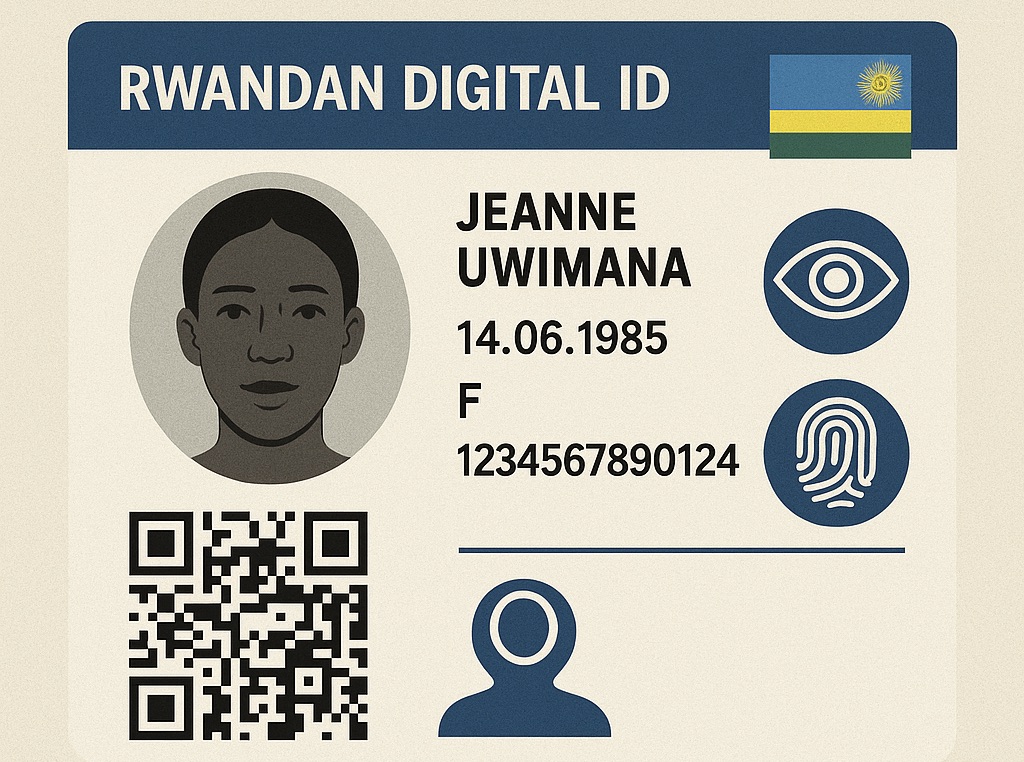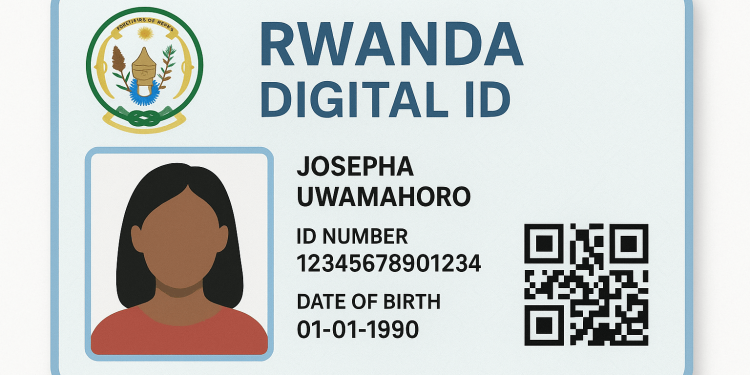Rwanda has officially embarked on the rollout of its new Single Digital Identification System (SDIS), a cutting-edge platform designed to revolutionize identity management in the country. The initiative, backed by the World Bank and Asian Infrastructure Investment Bank, aims to provide every resident with a secure, biometric-based identity accessible both physically and digitally.
The digital ID will come in three formats: a physical smart card with a QR code, a digital version for smartphones and computers, and a unique lifelong ID number for secure online verification. Unlike the current plastic ID system, the new platform will integrate advanced biometric data, including facial photographs, iris scans, and fingerprints.

According to the Ministry of ICT and Innovation, the new system is intended not only for Rwandan citizens but also for refugees, stateless persons, and foreign residents. The goal is to ensure universal access to essential services such as banking, healthcare, and education, while streamlining authentication for government and private-sector platforms.”This is more than an ID—it’s a gateway to digital services, economic participation, and social inclusion,” said Minister Paula Ingabire during the launch announcement. “Our citizens will have greater control over their personal data, with the ability to decide who can access it and revoke permissions at any time.”
The pre-enrolment phase began in mid-2025 through the national e-service platform Irembo, where citizens can verify their personal information before biometric data collection begins in September. Full issuance of the new IDs is expected to start in 2026, with the old IDs phased out completely by 2027.Government data security officials have emphasized that the system will use an Automated Biometric Identification System (ABIS) to prevent identity fraud and duplication. Privacy safeguards will also allow users to track which institutions have accessed their data.
The Rwandan government has allocated over RWF 12.2 billion (US $8.5 million) in the 2025–2026 fiscal year to implement the program, with the total project budget estimated at nearly US $40 million.
Observers say Rwanda’s adoption of a nationwide digital ID places it among the leading African nations in e-governance and digital infrastructure. If successful, it could serve as a model for secure, inclusive identification systems across the continent.






